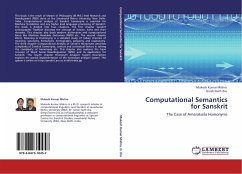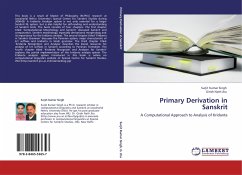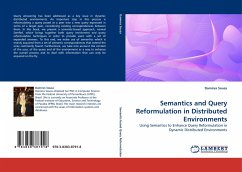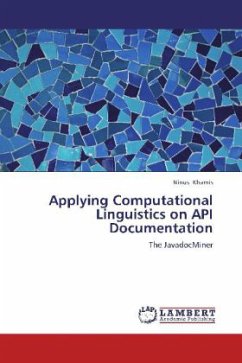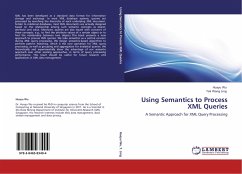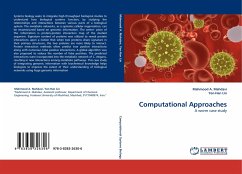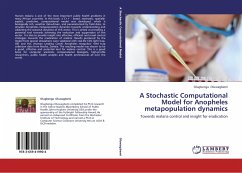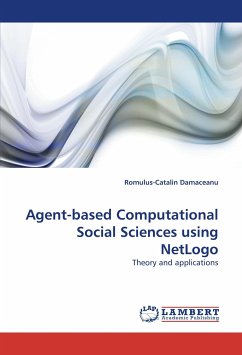This book is the result of Master of Philosophy (M.Phil.) level Research and Development (R&D) done at the Jawaharlal Nehru University, New Delhi, India. Computational analysis of Sanskrit homonyms is essential for Machine Translation and any higher level language processing of Sanskrit. The book is divided into four chapters. The First chapter Sanskrit Lexicographic Tradition discusses the concept of lexicon, ko a and their domains. This chapter also deals modern dictionaries and computational lexica like Machine Readable Dictionary (MRD) etc. The second chapter Word, Meaning & Homonymy is a detailed study of Indian theories of meaning, synonyms, homonyms, homographs, polysemy, and capitonymy. The third chapter Computational Analysis of Sanskrit Homonyms describes complexity of Sanskrit homonyms, context and contextual factors in solving the complexity of homonymy etc. This chapter also explores the basic concept of Word Sense Disambiguation (WSD) and its application for Sanskrit. The fourth chapter Homonym Analyzer System Description explains the partial implementation of the homonym analyzer system. This system is online on http://sanskrit.jnu.ac.in/skh/index.jsp
Bitte wählen Sie Ihr Anliegen aus.
Rechnungen
Retourenschein anfordern
Bestellstatus
Storno

